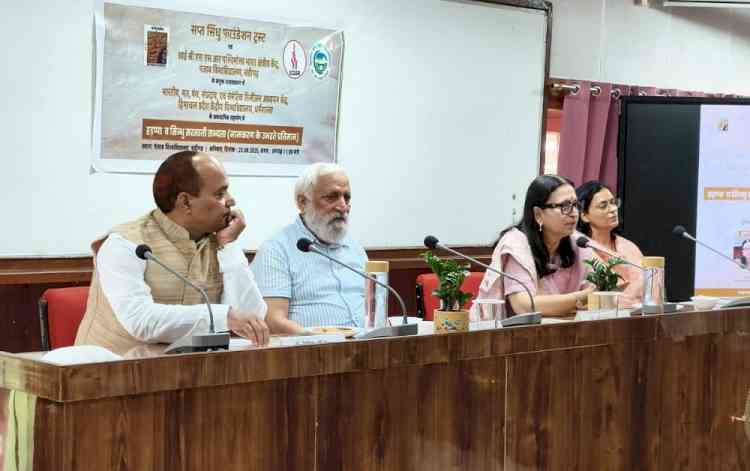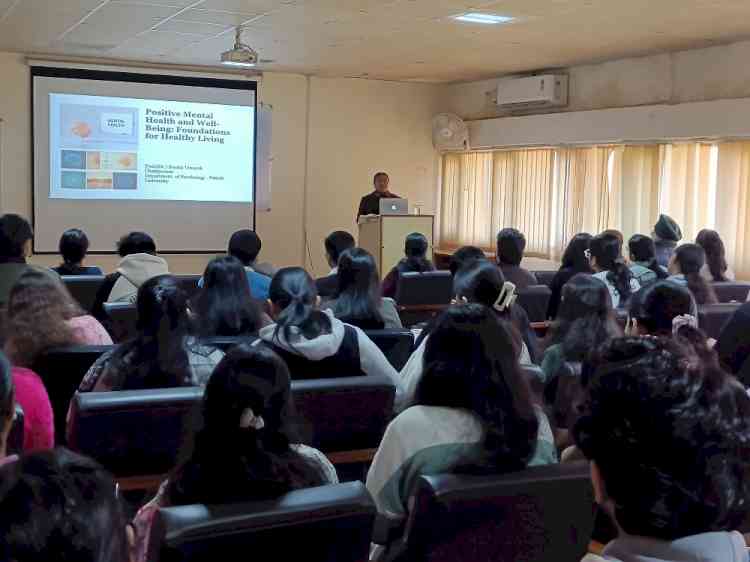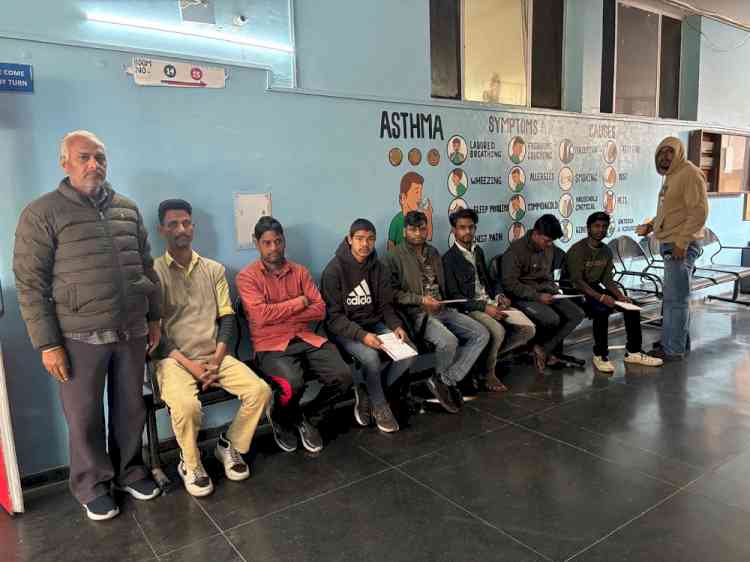Youth Must Step Out of Comfort Zones to Reconnect with Roots: Prof. Renu Vig
Two-day National Seminar concludes at PU

Chandigarh, 24 August 2025: The Harappa or Indus–Saraswati Civilisation is not only a legacy of the past but also a living tradition that provides guidance for the future. We must make efforts to bring tradition and modernity together because this is the only way through which we can connect the youth with our glorious history. Today’s youth need to step out of their comfort zone and connect with their roots. These words were expressed by the PU Vice-Chancellor, Prof. Renu Vig, at the two-day National Seminar on the theme “Harappa or Indus–Saraswati Civilisation: Emerging Paradigms of Nomenclature.”
The seminar was organised at Panjab University, Chandigarh under the joint auspices of ICSSR – North-West Regional Centre, Panjab University, and the Sapt Sindhu Foundation Trust, with academic collaboration from the Centre for Bhartiya Panth, Matt, Sampraday and Semitic Religions, Central University of Himachal Pradesh, Dharamshala.
In the valedictory session, the Chief Guest was Prof. Renu Vig and the Special Guest was Honorary Director, ICSSR – North-West Regional Centre, PU, Prof. Upasana Joshi. The session was presided over by Prof. Kuldeep Chand Agnihotri, President of the Sapt Sindhu Foundation Trust.
On the first day, in the virtual inaugural session, the Chief Guest was Prof. Sat Prakash Bansal, Vice-Chancellor of the Central University of Himachal Pradesh, and the keynote speaker was Prof. Vasant Shinde, former Vice-Chancellor of Deccan College University. The valedictory session began with the lighting of the ceremonial lamp and a welcome address. The seminar convener, Dr. Girish Gaurav, presented a detailed report of the two-day event.
Prof. Upasana Joshi said that such deliberations are extremely necessary and relevant for both society and academia. It is our responsibility to move rapidly in this direction within the field of social research. She emphasised that the continuous research being conducted in the direction of the Indus–Saraswati Civilization proves that we were already civilised.
Presiding over the seminar, Prof. Kuldeep Chand Agnihotri, President of the Sapt Sindhu Foundation, briefly narrated the entire history of Sapt Sindhu and said that the British attempted to present history in a distorted manner. They have continued to try to justify their false interpretation till today, and that is why they are still not ready to accept anything beyond the Harappan Civilization, whereas the truth is different. The question of nomenclature is important because earlier it was called Harappa or the Indus Valley Civilization since at that time remains were discovered only near the Indus River, but now it is not limited to the banks of the Indus alone; rather, it has expanded to many other regions.
Presenting the report of the two-day seminar, Convener Dr. Girish Gaurav said that during these two days, more than 250 academicians, researchers, and students from different parts of the country participated both online and offline. More than 60 research papers were also presented.
In the technical sessions, through the research papers and deliberations, efforts were made to find a clear answer to the question of nomenclature. Along with this, the discussions revolved around the naming of the civilization and its linguistic process, cultural memory, collective identity, and future directions of research.



 City Air News
City Air News 










